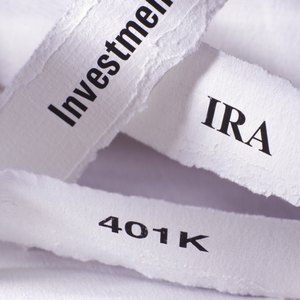
Since dividends may make up a significant portion of a retiree's income, you might wonder, "Does investment income affect Social Security?" You may also wonder, “Do I pay Social Security tax on investment income?” Well, it depends.
Generally, the impacts of dividends are fairly benign: They are usually taxed at the long-term capital gains rate and never count as earnings subject to Social Security tax. The bad news is that the maximum earnings subject to Social Security tax rose in 2021.
Read More: Do You Pay Taxes on Social Security?
How Dividends Work
Dividends are distributions to shareholders from the earnings and profits of corporations. They are usually paid in cash but may take the form of additional stock or some other property.
Dividends are classified as either qualified or nonqualified, which affects how they are taxed. Most U.S. corporate dividends are qualified, which means they may be subject to the long-terms capital gains (LTCG) rate. Nonqualified dividends are taxed as ordinary income at your marginal tax rate.
The capital gains distributions of mutual funds and ETFs are often loosely referred to as dividends, but strictly speaking, they are distributions. They result from dividends in the fund’s portfolio and capital gains that a fund earns on the sale of stocks or other assets. Capital gains distributions are always taxed as long-term capital gains.
If you receive more than $10 in dividends, the payer will send you Form 1099-DIV, Dividends and Distributions, with the information you need to account for and pay taxes on dividends and capital gain distributions.
Dividends and Social Security Taxes
Workers pay Social Security tax of 6.2 percent on their employment earnings (12.4 percent for self-employment earnings), up to the maximum taxable earnings for the year. In 2021, the Social Security earnings maximum rose to $142,800 from the previous year’s maximum of $137,700.
The Social Security taxes apply to earned income, wages or net self-employment income. However, you don't have to pay Social Security tax on investment income, including dividends, capital gains and interest from investments and savings.
Dividends and Social Security Benefits
You can begin receiving Social Security benefits as early as age 62 or as late as age 70. The amount you receive each month depends upon your earnings and your age when you first claim payments. Your benefits increase every year you delay claiming them up to age 70.
Your Social Security benefits will be partially withheld if:
- You claim them before reaching full retirement age (66 or 67, depending on when you were born), and
- You continue to work and
- Your earnings from work exceed the retirement earnings test exempt amount (RETEA).
Note that you don’t lose the withheld benefits. Rather, your monthly benefits will incorporate the withheld amount once you reach full retirement age.
The 2021 RETEA for those reaching full retirement age after 2021 is $18,960. The withheld amount is $1 in benefits for every $2 in earnings above this RETEA. If you reach full retirement age in 2021, the RETEA is $50,520 on earnings made before the month you reach full retirement age. The withheld amount is $1 in benefits for every $3 in earnings above this RETEA.
The RETEA is applied to earnings from work. Passive income, including dividends, does not count as earnings subject to the RETEA. Withholding ends once you reach full retirement age.
Dividends and Income Taxes
Qualified dividends are taxed at the long-term capital gains rate. To qualify for them, you must hold the dividend-paying common stock for at least 61 days during the 121-day period beginning 60 days before the stock’s ex-dividend date (the date the stock’s price is reduced by the dividend amount).
Preferred stock has longer holding periods. The long-term capital gains tax rates for single filers as of 2021 are:
- 0 percent: For taxable income below $40,400
- 15 percent: For taxable income between $40,400 and $445,850
- 20 percent: For taxable income above $445,850
Different thresholds apply for those married jointly, qualified widows and widowers, married but filing separately, and heads of households. So take note of that. In addition, dividends and other investment income may be subject to net investment income tax at the rate of 3.8 percent for individuals with an annual modified adjusted gross income of $200,000 or more ($250,000+ for married filing jointly).
References
- Corporate Finance Institute: Dividend
- IRS.Gov: Topic No. 404 Dividends
- Kiplinger: Qualified Dividends vs. Ordinary Dividends
- SSA.Gov: 2021 SOCIAL SECURITY CHANGES
- SSA.Gov: Exempt Amounts Under the Earnings Test
- Investor.Gov: Ex-Dividend Dates: When Are You Entitled to Stock and Cash Dividends
- IRS.Gov: Topic No. 409 Capital Gains and Losses
- IRS.Gov: Questions and Answers on the Net Investment Income Tax
Resources
Writer Bio
Eric Bank is a senior business, finance and real estate writer, freelancing since 2002. He has written thousands of articles about business, finance, insurance, real estate, investing, annuities, taxes, credit repair, accounting and student loans. Eric writes articles, blogs and SEO-friendly website content for dozens of clients worldwide, including get.com, badcredit.org and valuepenguin.com. Eric holds two Master's Degrees -- in Business Administration and in Finance. His website is ericbank.com.

